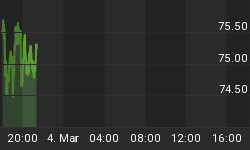Gold Break Out Looms as "Stocks Battle Bonds", Europe's Politicians Turn on Finance Sector
THE PRICE OF GOLD held inside this week's tight range early Thursday in London, trading up to $949 an ounce as Asian stock markets closed 1% lower and European stocks moved sideways.
Crude oil ticked lower towards $71 per barrel. Government bond prices rose.
The Dollar was little changed vs. the Euro ahead of a revised GDP estimate, expected to show the US economy contracting by 1.5% between April and end-June.
"Gold doesn't really have its own momentum," said one Hong Kong dealer to Reuters this morning.
"I suspect that will remain the case until after the US Labor Day holiday [on Sept. 7] when most people, including fund managers, return from their holidays."
Next Monday's August Bank Holiday here in the UK will mark the end of London's vacation season.
Thursday morning saw Sterling fall as better-than-expected UK housing data was negated by a record drop in business investment of almost one-fifth from this time last year.
Dropping to a fresh 6-week low vs. the Dollar below $1.62, Sterling's fall helped drive the Gold Price in British Pounds above £585, a new 11-week high.
Eurozone investors looking to Buy Gold meantime saw the price sit tight, moving just €1.50 either side of €664 an ounce.
"Shrinking ranges are often warnings of a pending break out, but the question of 'when' is still a mystery," says a technical note from Scotia Mocatta in London.
"The lower tops in August of $971, $960 and $957 signal that the market is a bit tired but we will need to break $930 to bring in the sellers."
"The bond market is bearish on the economy, while the equity market is bullish," says Walter de Wet at Standard Bank. "Both can't be right [and] precious metals are caught in the battle."
What gold dealers in the Far East called "light buying" dried up early Thursday as local stock markets fell and investment cash moved into government bonds.
Japanese government bond yields fell to a six-week low. The Yen rose to its best level this month vs. the Dollar, holding Tokyo Gold Futures flat at ¥2,859 per gram for August 2010 delivery.
"If China puts on the brakes, worries about the global economy will likely increase, which would lead to Yen buying," reckons Ayako Sera at Sumitomo Trust, speaking today to Bloomberg.
A report from Royal Bank of Scotland's Hong Kong office this morning said the Chinese government is "tweaking" its stimulus policies, aiming to "reduce froth rather than slow growth."
Facing a "decline in external demand [which] may continue for a longer time" in the words of one government official, Beijing has initiated a $585 billion stimulus package, urging greater consumer spending and sparking a fresh record in new private-bank lending of $1.1 trillion so far this year - more than twice the first 7 months of 2008. [Read more on China's Galloping Consumption here...]
German banks, in contrast, "are not stepping up to their responsibility to provide credit," said German finance minister Peer Steinbrück to Handelsblatt paper overnight.
The German government is now considering making direct loans to manufacturing businesses after Bundesbank chief Axel Weber warned of a "second wave" of financial crisis thanks to "stress from our domestic credit industry."
London's chief financial watchdog, Lord Turner, yesterday accused UK banks of indulging in "socially useless" trading and mooted a tax on financial transactions.
"If you want to stop excessive pay in a swollen financial sector, you have to reduce the size of that sector or apply special taxes to its pre-remuneration profit," said the chairman of the Financial Services Authority.
Barclays Global Investors (BGI) in New York meantime said it will push ahead with new exchange-traded products in precious metals, despite what Reuters calls "worries that US regulators may impose new position limits on commodity futures."
Monday saw BGI temporarily suspend the creation of new shares in its iShares S&P GSCI Commodity-Indexed Trust, after the volume of futures contracts it needed to track raw material prices got "really close" to position limits set by the Commodity Futures Trading Commission.
Exchange-traded gold funds - led by StateStreet's $34 billion SPDR Gold Trust - typically hold physical metal in trust. Leveraged, inverse and so-called "double" products do use derivatives, however, to extend their daily moves.
Neither the CFTC in the States nor the FSA in Britain regulate the market in physical metals such as Gold Bullion.















